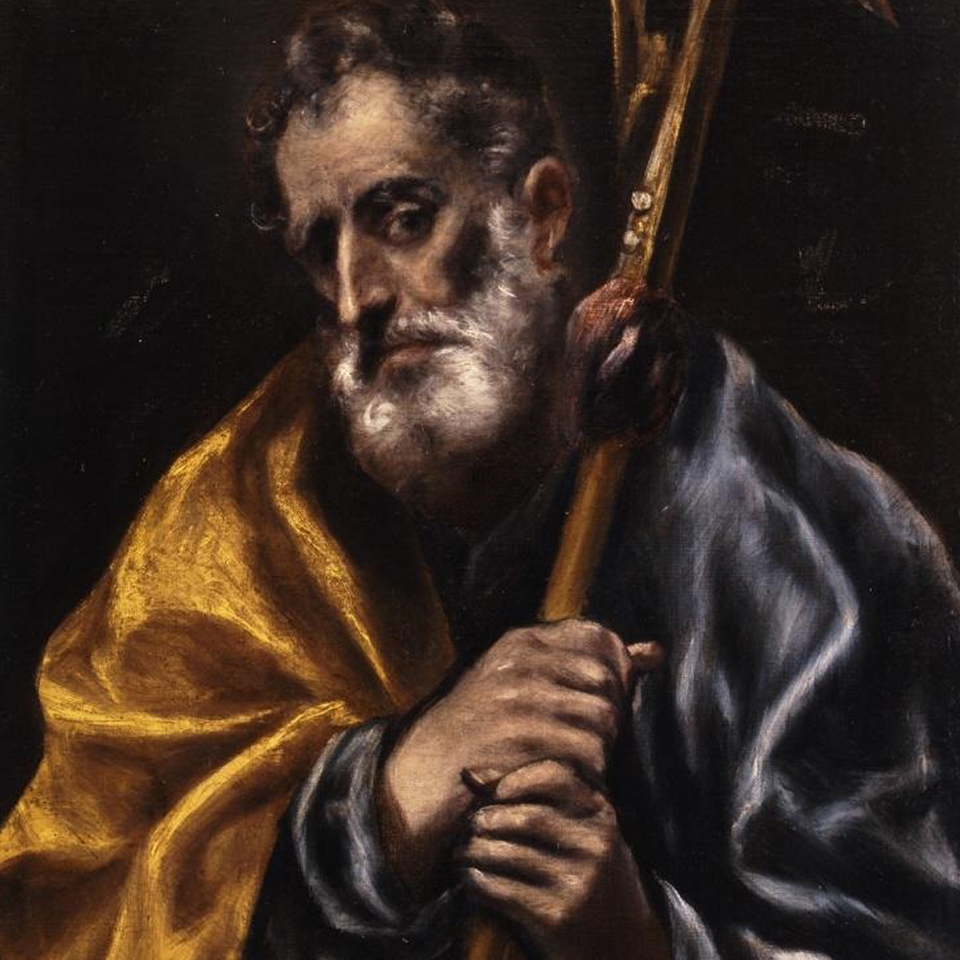Today the Church celebrates the feast day of the great saints, Simon and Jude.
Both were Apostles, members of the original twelve men who were chosen by Christ to exercise his own authority as priest, prophet, and king, and in doing so, govern his Church.
That there are twelve Apostles is no mere accident. Christ has come to reconstitute Israel, and just as there were twelve tribes that constituted the people of Israel, so would there be twelve new apostolic tribes from which the universal Church, the new Israel, would grow. We are the living legacy of the twelve Apostles. Our mission here is an extension of their mission. Our faith is the faith of the Apostles. The Church to which we belong is the new Israel.
Simon and Jude share the same feast day as well as the same tomb. Their mortal remains rest in the great basilica of St. Peter’s in Rome.
The Gospels tell us little about the two. Simon is remembered in the Gospels as a “zealot” or a “Canaanite.” If he was a zealot, this would mean that he was an insurrectionist or what we would call a terrorist, likely a member of those groups who advocated a violent overthrow of Rome and their collaborators. Remember, at the time of Christ, the lands of Israel were essentially occupied territory, controlled by the emperor of Rome and his legions.
However, the reference to Simon as a zealot may not be accurate. The description might mean that Simon was “zealous,” filled with tenacity and determination in his faith in Christ. Zeal is not currently in favor in terms of religious conviction in our culture. We can be zealous about nearly everything except faith. Religious zeal is decried as being off-putting and inappropriate. Religious zeal is seen as almost entirely negative. But is it?
I think that the Church could use some zeal these days, especially in an age when so many Catholics can barely muster the energy to even speak to one another about their faith in Christ. Too many of us have been so zealous in our embrace of secular culture that we have forgotten who Christ has called us to be—not just good citizens, but a holy nation, a royal priesthood, a people set apart, Christ’s new Israel.
Perhaps St. Simon the Zealous can intercede on our behalf in this regard. Make us bold and less reticent about living out and sharing the faith we profess.
St. Jude (or Judas) scarcely gets a mention in the Gospels. Many know him as the special friend and intercessor for those beset by seemingly hopeless predicaments. How he came to be associated with this likely has to do with his name and its similarity to the name of the one who betrayed Christ—another Jude, named Judas Iscariot. Few situations seem as hopeless as the predicament of the man who betrayed Christ and delivered him to his enemies.
Somehow the Apostle who shared the same name as the one whose life took such a desperate turn became the one folks would turn to in times of desperate need.
St. Jude seems to have embraced this mission with gusto, as stories of his intercession on behalf of the desperate and hopeless are renowned.
That the Gospels, in general, pay little attention to the details of the lives of the Apostles might strike us as odd. The details of their lives are mostly lost to the past. In heaven we will know them better, but now, we know of them mostly through the legacy of their faith which is living in us.
This obscurity is also a significant lesson for us. To be a disciple is not meant to be an exercise in self-promotion. Holiness happens to us when we willingly disappear into the mission of the Church. Our work, our mission, is not about us, what we want, or what we prefer, but about giving our lives over to Christ and letting him do with us what he wills.
The Apostles proved themselves faithful by their willingness to live for Christ and disappear into the mission of the Church. We should imitate their example.
